Ongoing measures to reconnect Lake Kartal with neighbouring lakes and the River Danube are seeing wildlife populations rebound and driving the development of the local economy.
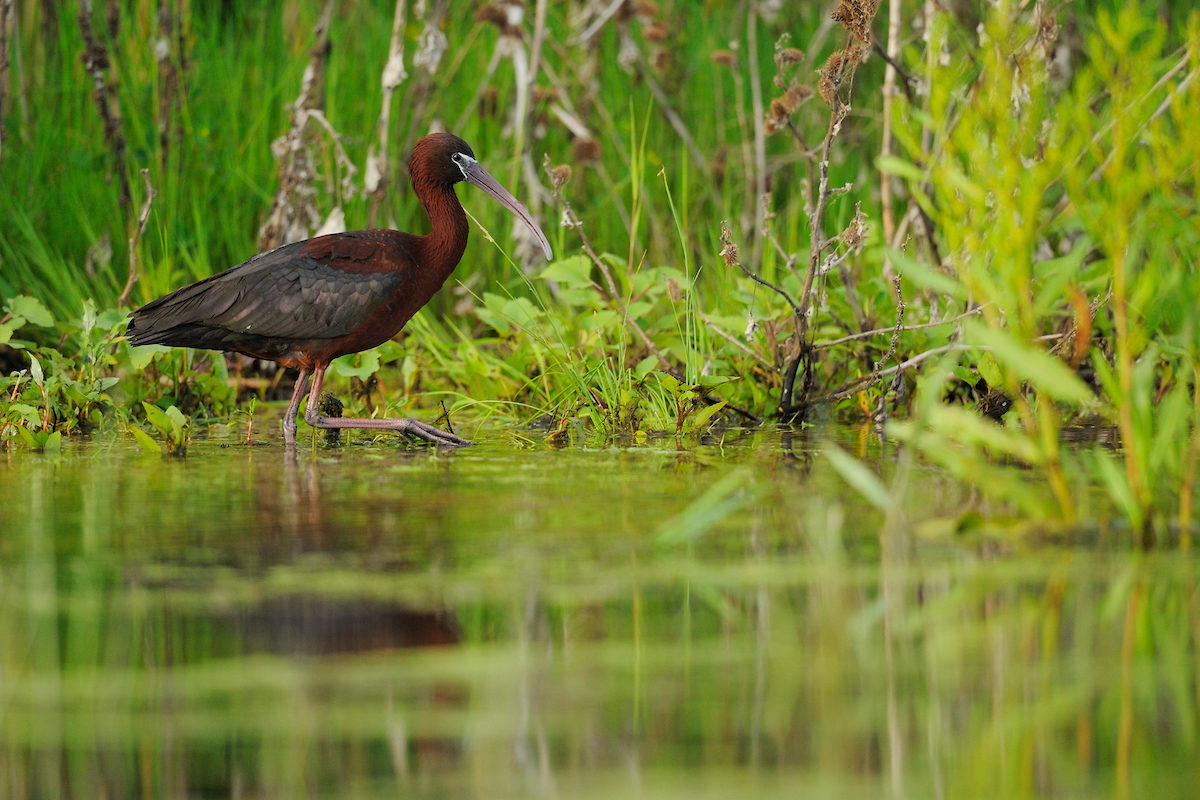
 A focus on flow
A focus on flow
Between the 1950s and 1980s, the Danube Delta suffered widely from hugely damaging hydraulic engineering projects. In Romania, Ukraine and Moldova, these saw a life-sapping web of dykes and irrigation systems disconnect huge swathes of floodplain from the river’s main channels, negatively impacting biodiversity and impairing the ability of the river to provide clean drinking water, mitigate flooding and support commercially sustainable fish stocks.
Many of the current rewilding efforts in the Danube Delta, which scaled up at the start of 2019 with the start of an Endangered Landscapes Programme-funded initiative, are now focused on revitalising wild nature by restoring connectivity and natural water flows. Such efforts are typified by the ongoing restoration of the 1550-hectare Lake Kartal, a shallow body of water and RAMSAR site located in the upper part of the Ukrainian Danube Delta, near the village of Orlovka (see map).
“By the end of the summer, Kartal Lake will be reconnected with Kugurluy and Kagul lakes, and with the Danube itself,” explains Rewilding Ukraine Executive Director Mykhailo Nesterenko. “This will see restored natural processes continue to rejuvenate the lake and its diverse wildlife populations and thereby support the development of nature-based tourism.”
The road to recovery
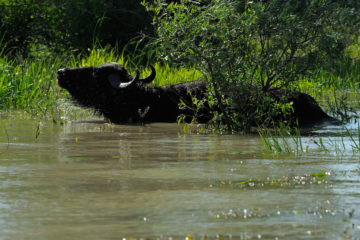
In the second half of the twentieth century, Kartal Lake was isolated by a system of dykes and sluices, severely disrupting natural processes. The lake filled with silt and became overgrown with aquatic vegetation – as a result, the area of open water and depth of the lake decreased dramatically, while water quality deteriorated significantly. Over the years fish populations dropped and the area became increasingly unattractive for tourists.
The restoration of Lake Kartal began in 2016. In collaboration with a Ukrainian NGO, the Danube Basin Water Management Department cleared a number of natural channels leading to the lake, reconstructed a sluice, and partially restored floodplain meadows.
In 2017, with the flora and fauna of the lake already recovering, the restored area was designated the “Kartal Eco Park”, with a herd of water buffalo translocated from Transcarpathian Ukraine to boost natural grazing and attract tourists. Wildlife highlights now include glossy ibis, Dalmatian and white pelicans, pygmy cormorants, spoonbill, red-breasted goose, squacco heron and a range of rare plants, as well as 15 of these hefty herbivores.
Futher revitalisation
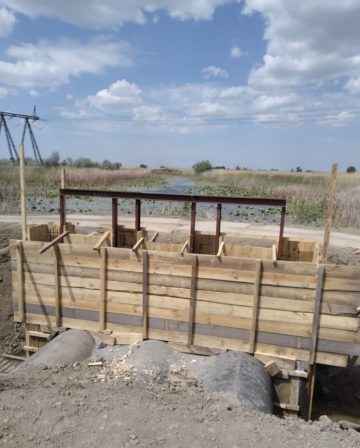
The start of the Endangered Landscapes-funded rewilding initiative in 2019 saw restoration of Lake Kartal continued and stepped up by the Black Sea and Lower Danube River Basin Directorate (a partner in the initiative). Pipes were laid through a dyke separating Kartal and Kugurluy lakes, restoring water exchange. In 2019 the lake was designated a landscape sanctuary of national importance under Ukrainian law, affording it added protection.
Restoration efforts will be resumed in the early summer, with the cleaning of natural channels between Lake Kartal and Lake Kagul, and between Lake Kartal and the River Danube. These actions should be completed by the end of the summer.
“Once this work is finished the water regime of Lake Kartal will be much closer to what it should be naturally,” says Mykhailo Nesterenko. “Water quality, productivity and nature-based tourism will continue to improve and develop, creating the conditions for the integrated and sustainable use of the lake, its meadows and floodplains.”
The latter will be facilitated through the development of a new Lake Kartal water management plan by the Black Sea and Lower Danube River Basin Directorate and Rewilding Ukraine team. This should be in place by the end of 2020.
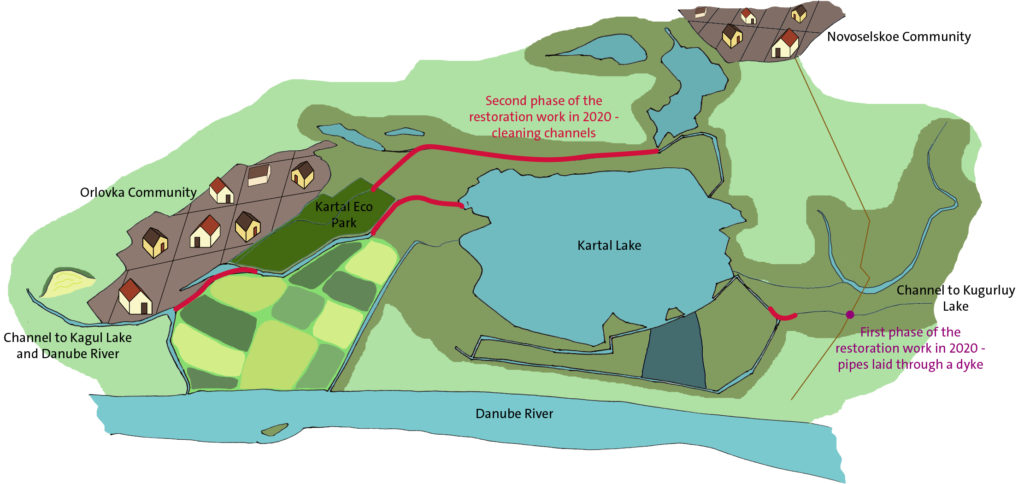
The people perspective
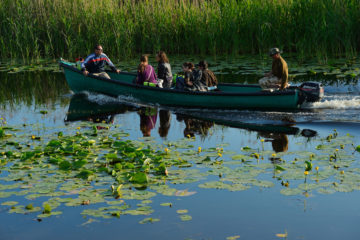
It is critical that rewilding efforts in the Danube Delta continue to benefit local communities. Going forwards, the Rewilding Ukraine team will support the development of Kartal Eco Park by installing information boards, building wildlife hides and a wildlife watchtower, and developing an eco-trail. By boosting nature-based tourism this will support local enterprises.
The Rewilding Ukraine team will also help local nature-based businesses to promote Lake Kartal as a destination, as well as their products and services. There are plans to hold a nature-themed community festival in Kartal in either 2021 or 2022.
Want to know more?
- Rewilding Europe’s work in the Danube Delta
- Rewilding Ukraine Facebook page
- Rewilding Danube Delta Facebook page
- Endangered Landscapes Programme
